Bank of Japan retains its ultra-loose policy, says 2% inflation target is in sight
All economists surveyed by Reuters expected the Bank of Japan to maintain its negative rate policy this month — making the BOJ the world's only central bank with negative rates.
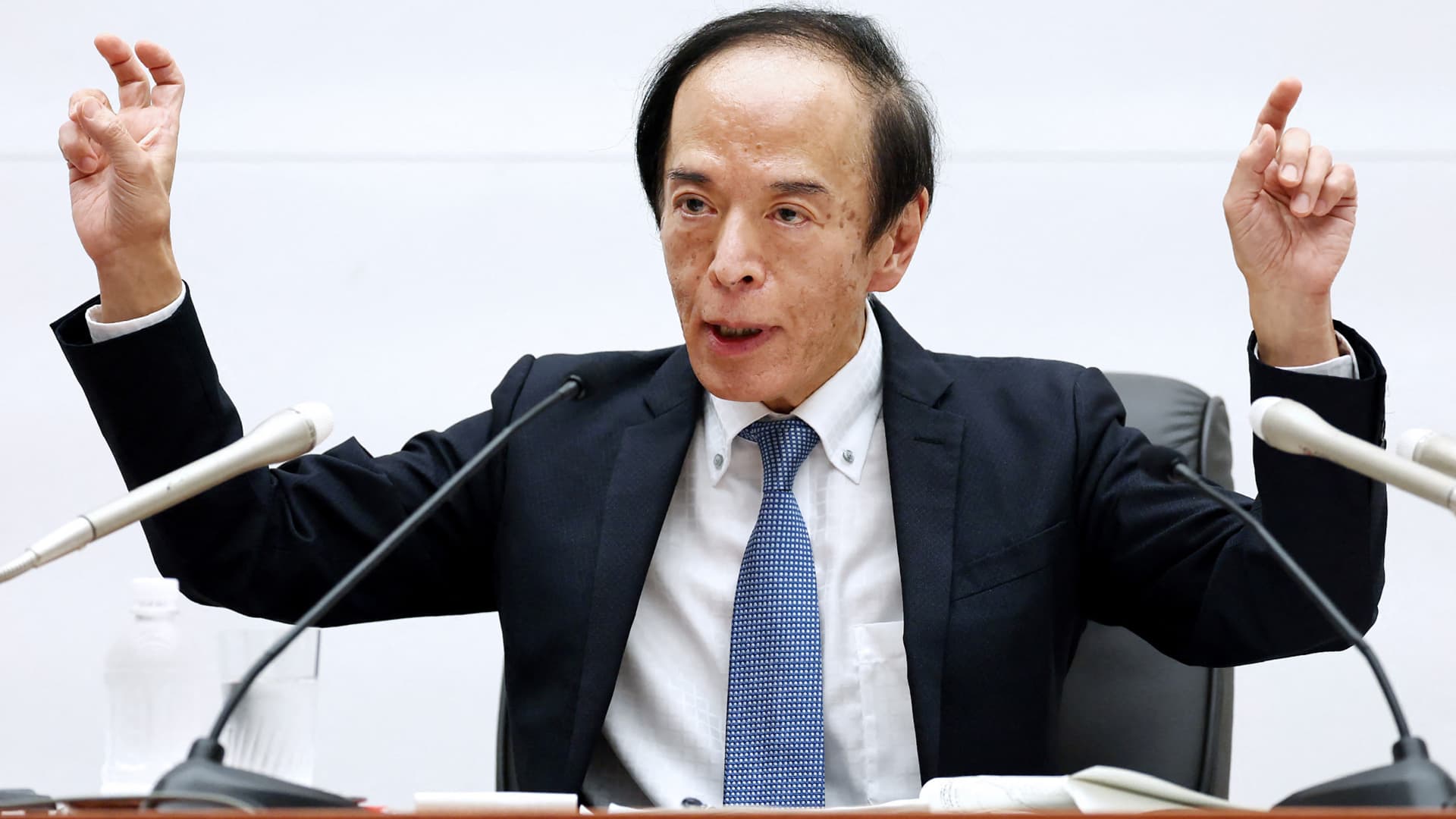
Bank of Japan governor Kazuo Ueda gestures as he speaks during a press conference following a monetary policy meeting at the Bank of Japan's headquarters in Tokyo on July 28, 2023.
Str | Afp | Getty Images
The Bank of Japan said Tuesday that prospects of the world's third-largest economy sustaining the 2% inflation target were "gradually heightening," after the central bank expectedly retained its ultra-loose monetary policy at its first meeting this year.
The BOJ decided unanimously to keep interest rates at -0.1%, and stuck to its yield curve control policy that keeps the upper limit for 10-year Japanese government bond yield at 1% as a reference, according to a policy statement released Tuesday after a two-day meeting. This was in line with the expectations of economists polled by Reuters.
"We were able to confirm that the economy is moving in line with our projections on inflation," Governor Kazuo Ueda said in a press conference in Tokyo, according to a Reuters translation.
"Our core-core inflation forecast is at 1.9%, very close to our 2% target. This was the case in October but it happened again this time, after close scrutiny."
Japan's central bank defines "core-core inflation" as inflation that excludes growth in food and energy prices, while core inflation is inflation that excludes only food prices.
"This is the biggest factor that made us more convinced than before that the likelihood (of sustainably achieving our price target) is gradually heightening," Ueda added. "But it's hard to quantify how close we've come."
The yen strengthened 0.7% to 147.4 yen against the dollar and the Nikkei 225 equity benchmark closed 0.1% lower after briefly nearing a fresh three-decade high. Yields on the 10- and 30-year JGBs inched higher, while those on shorter-term bonds crept lower.
Inflation outlook
In its quarterly outlook, BOJ board members lowered their median growth forecast for core consumer prices to 2.4% for fiscal 2024 starting this April, compared with 2.8% they estimated in October, due to declines in oil prices.
The central bank also marginally increased the core CPI inflation estimate for fiscal 2025 to 1.8% from 1.7% forecast earlier. The BOJ stuck to its previous median forecasts for fiscal 2024 and 2025 for the so-called "core core inflation" at 1.9%.
"Underlying CPI inflation is expected to increase gradually toward achieving the price stability target, as the output gap turns positive and as medium- and long-term inflation expectations and wage growth rise ... although there remain high uncertainties over future developments." the BOJ said.
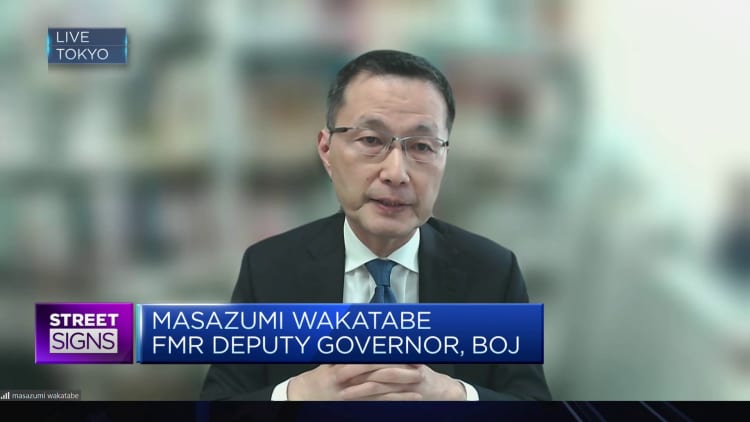
Japan's core CPI slowed to 2.3% in December, easing pressure on the BOJ to normalize its policy — though this print has stayed above the BOJ's stated 2% target for 21 straight months now.
"It's true the recent move in service prices is clearly driven by several one-off factors. It's also true that the weakness in consumption is affecting service prices. That's why we are trying to extrapolate the trend stripping away such factors," Ueda said.
"When we do so, we still think service inflation is gradually accelerating as a trend. The focus ahead will be whether wage hikes will spread to prices, particularly service prices," he added.
Wage growth
The market consensus is for the BOJ to normalize its rates at its April meeting, once the annual spring wage negotiations confirm a trend of meaningful wage increases.
Japan's central bank believes this trend would encourage consumers to spend and lead to a more sustainable and stable inflation, driven by domestic demand.
"If we were to wait for the outcome of all firms' wage negotiations, including smaller firms, that will take a very long time. Even if we don't have wage data, we can look at various economic moves in predicting the outcome of smaller firms' wage outlook," Ueda said.
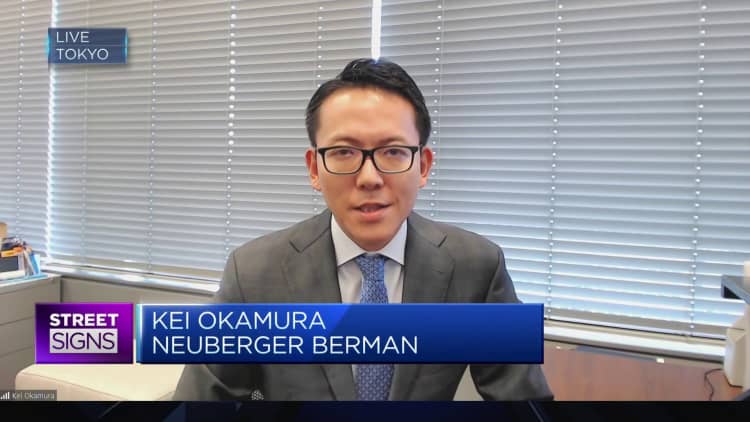
Japan's umbrella labor union, Rengo, said in October that it would demand wage hikes of at least 5% at this year's spring wage negotiations. The union managed to secure the biggest raise in three decades at last year's talks in March.
"If we expect real wages to remain negative for a very long period of time, that means achievement of our price target will be distant. But if we can foresee real wages turning positive, the fact real wages are negative now won't necessarily prevent us from normalizing monetary policy," Ueda said.

 Hollif
Hollif 











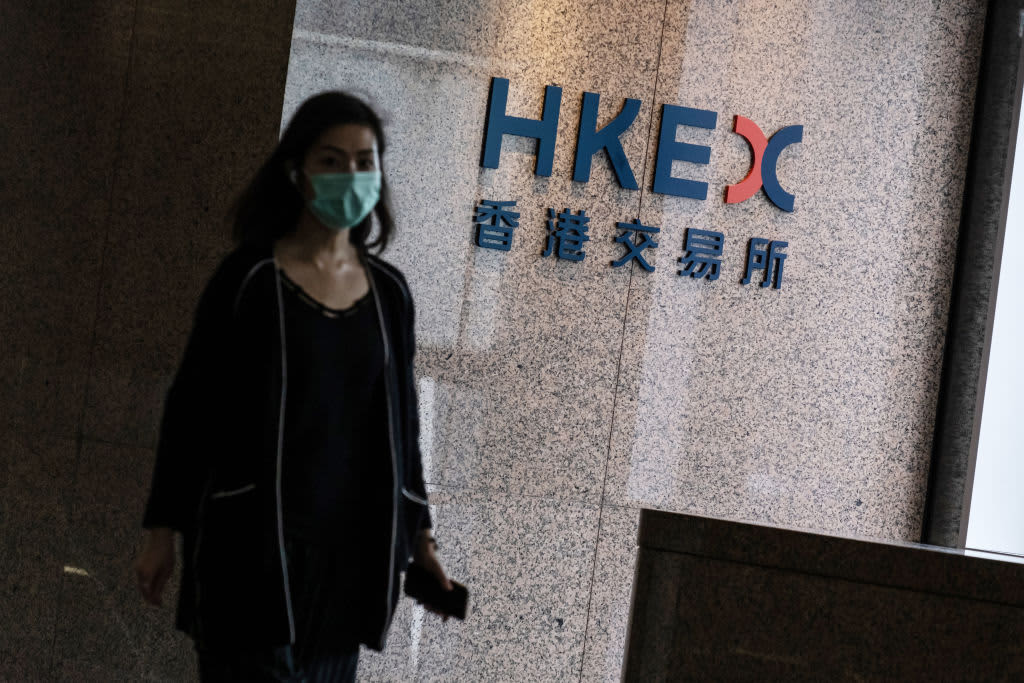
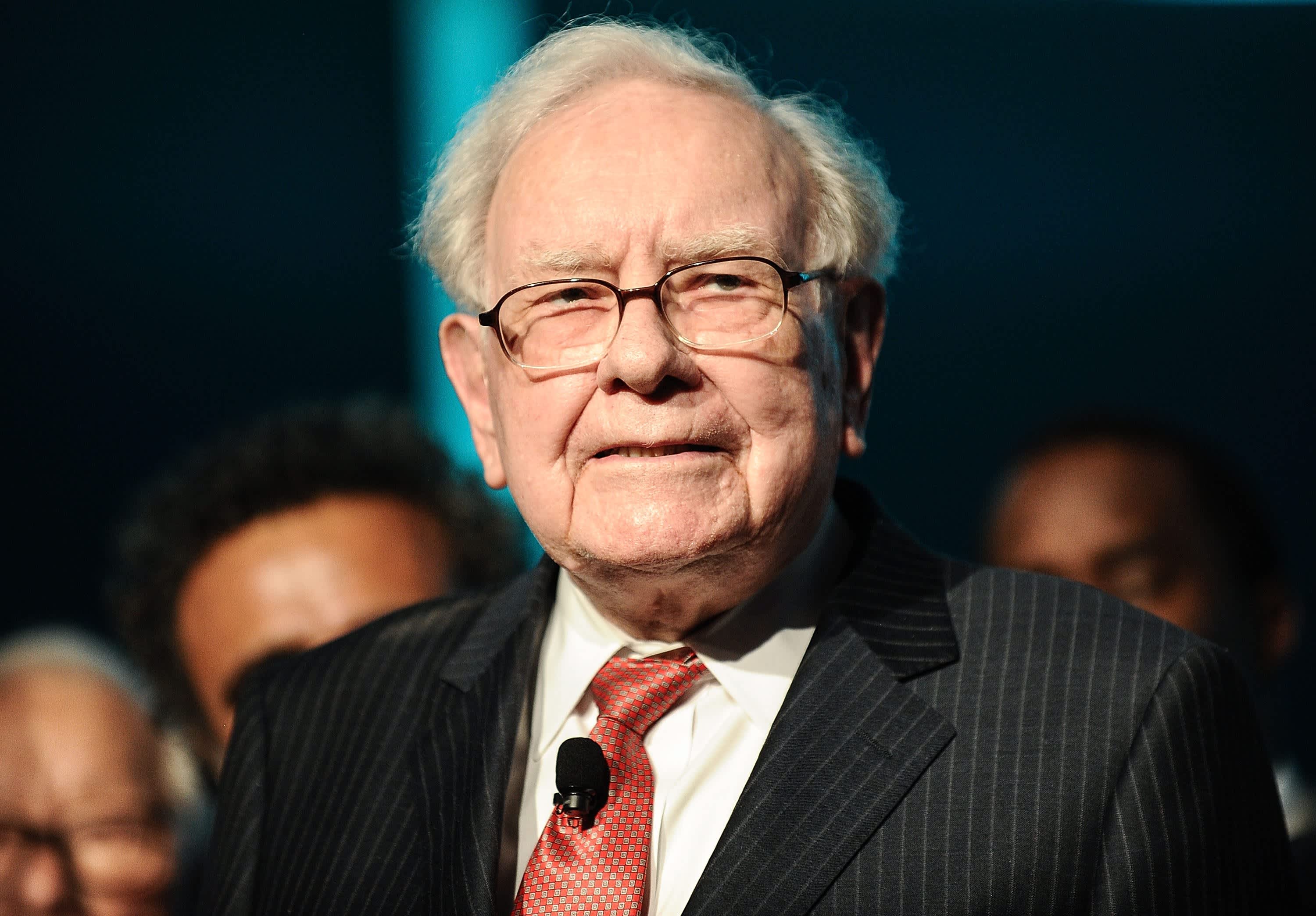











![8 steps to build your account-based marketing strategy [+ recommended tools]](https://www.hubspot.com/hubfs/account-based-marketing.webp)






